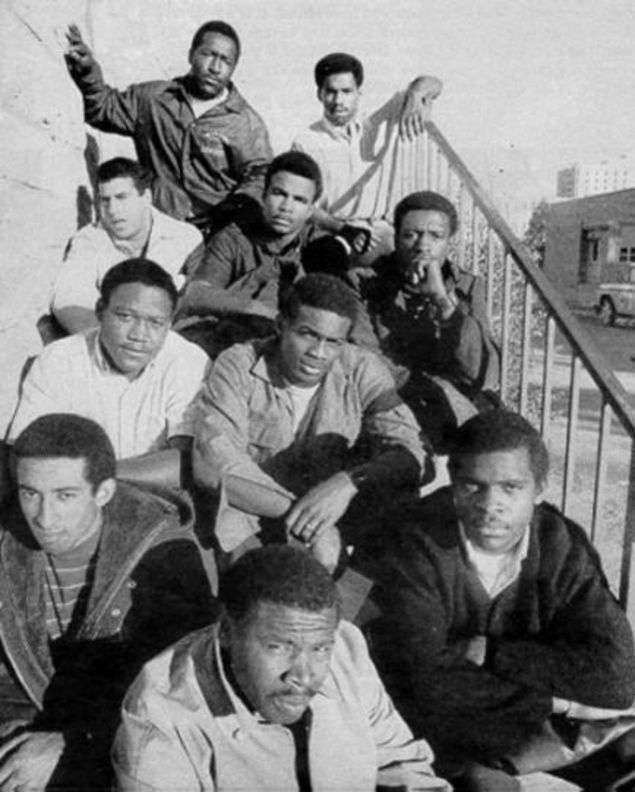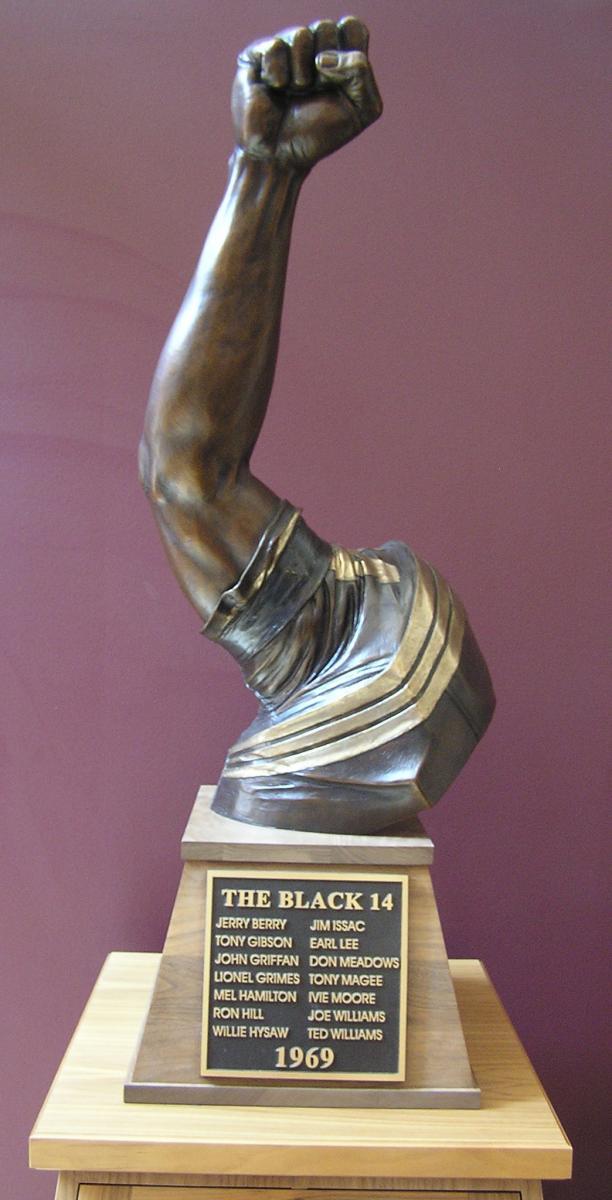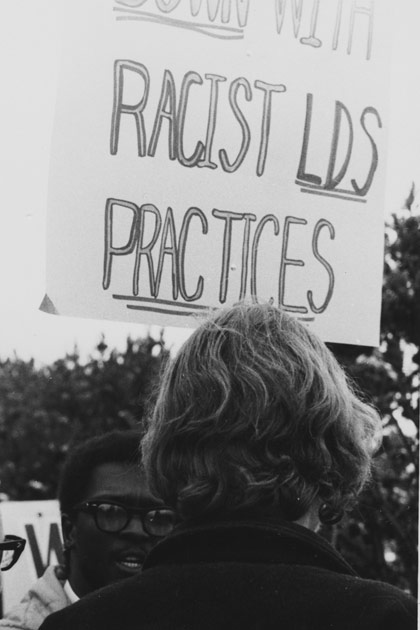

We continue looking at athletes engaged in social and political protest. Today’s entry is long, but well worth the read.
The Black 14

When the University of Wyoming was slated to play Brigham Young University in 1969, 14 of Wyoming’s black football players wanted to protest the game: the church of Latter Day Saints had a rule that forbade African-Americans from entering the priesthood. (In 1978, the Mormon Church changed its rule.) When the players approached their coach, Lloyd Eaton, seeking permission to wear black armbands during the game, he refused. And when they later asked him to reconsider, he banned them from the team. These teammates became known as the “Black 14.”

(taken from The Black 14: Race, Politics, Religion and Wyoming Football. Article has been edited for length, read full article at link)
During the second period of the season-opening football game against Arizona on Sept. 20, 1969, a packed house at the University of Wyoming‘s War Memorial Stadium watched as Cowboys’ split end Ron Hill, a sophomore from Denver, caught a pass and took it 24 yards into the end zone. It was Wyoming’s first touchdown in the 100th anniversary year of college football.
In the third quarter, Jay Berry—then called Jerry Berry—a sophomore safety from Tulsa, Okla., intercepted an Arizona pass on his own 12-yard line and returned it 88 yards for another touchdown.
But these football triumphs faded quickly from public memory when a controversy that fall linking sports, race, religion and protest politics swung the nation’s news spotlights to Laramie, Wyoming at a time when Americans were already deeply divided over civil rights and the Vietnam War. Controversy erupted over the expulsion of 14 African-American football players from the Cowboys’ varsity. They came to be known as the Black 14.
The Cowboys opened the season by defeating Arizona, the Air Force Academy, Colorado State University and the University of Texas at El Paso, and were ranked 12th in the nation in the United Press International coaches poll as the players prepared for their next game against Brigham Young University. The UW team led the nation in rushing defense.
Under Head Coach Lloyd Eaton, Wyoming had won three consecutive Western Athletic Conference championships in the three previous years; had won 31 of the previous 36 games; defeated Florida State in the Sun Bowl and very nearly upset Louisiana State University in the Sugar Bowl on Jan. 1, 1968, after going undefeated during the 1967 regular season.
The 51-year-old Eaton, a native of Belle Fourche, S.D. was at the peak of his career. On Oct. 11, 1969, the Madison, Capital Times reported that Wisconsin Athletic Director Elroy Hirsch was considering Eaton as a candidate for the Big Ten team’s next coach.
But on Friday morning, Oct. 17, 1969, the day before the BYU game, Eaton summarily dismissed Hill, Berry and the 12 other African-American players on the UW team when they appeared at his office as a group wearing black armbands on their civilian clothes. BYU is owned and operated by the Church of Jesus Christ of Latter-day Saints, better known as the Mormons. By wearing the armbands, the players were protesting the LDS policy then in force, which barred black men from the priesthood.
The coach’s action deeply affected the players’ lives, and soon caused the demise of his own coaching career. The university, too, was profoundly affected.
[…]
In the western United States, some college athletes learned of the Mormon Church’s policy of barring black men from the church’s lay priesthood and thus from leadership in the church. The students felt they could bring attention to what they saw as an injustice by protesting when their teams played Brigham Young University. BYU, located in Provo, Utah, is wholly owned and operated by the Mormon Church.
In November 1968, at San Jose State in California, black football players boycotted a home game against BYU, and only 2,800 fans “braved threats of disruption and demonstration” to come to the game, BYU’s football media guide noted the following year. In April, 1969, black track athletes at the University of Texas at El Paso were ejected from the team when they refused to participate in a meet at Provo.

On Oct. 6, an Associated Press story in Wyoming newspapers reported that an Arizona State black student group had asked black students to boycott the Sun Devils’ Western Athletic Conference game against BYU that week because of alleged discrimination against blacks at BYU.
About a week before the UW-BYU game, slated to be played on UW home turf in Laramie, Willie Black, a 32-year-old math doctoral student with a wife and four children living in student housing, had learned of the Mormon policy. Black was chancellor of UW’s Black Students Alliance.

On the Monday before the game, he informed alliance members, including the black football players, of what he had discovered. On Wednesday, he delivered a statement entitled “Why We Must Protest” to the UW president and athletic director. The document announced plans for a demonstration at the stadium before the BYU game.
[…]
After practice on Thursday afternoon, Oct. 16, Coach Eaton warned Wyoming’s tri-captain Joe Williams about the coach’s rule prohibiting participation by athletes in demonstrations. Williams conveyed this information to his fellow black players that night, and they decided to meet with Eaton to discuss the issue.
About 9:15 a.m. on Friday, the 14 black players gathered at Washakie Center in the dormitory complex. They donned black armbands and walked to Memorial Fieldhouse where Eaton had his office, hoping to persuade the coach to allow them to show some solidarity with the BSA call for a protest.
Seeing them together, wearing armbands, Eaton led them into the upper seating area of the fieldhouse and, according to the players, immediately told them that they were all off the team. After that, according to the wife of a faculty member who was walking on the fieldhouse floor below, the coach insulted the players in an angry manner, which further polarized the situation.
“It was pretty belligerent talk,” Ann Marie Walthall recalled more than 20 years later in a documentary on the Black 14 produced by University of Wyoming Television. “I felt embarrassed for the young men hearing this tirade.”
(continue to page 2)
